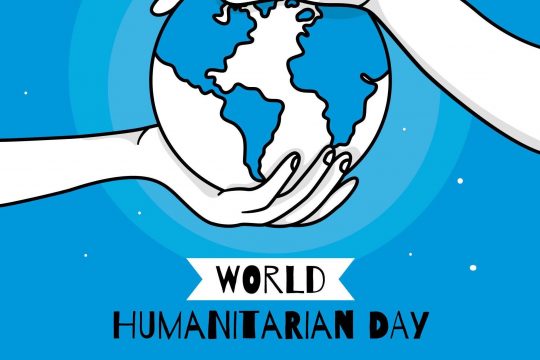The Global Platform for Disaster Risk Reduction (GPDRR) 2022 will be taking place from 23 – 28 May 2022 in Bali, Indonesia under the main theme of ‘From Risk to Resilience: Towards Sustainable Development for All in a COVID-19 Transformed World’. The three sub-themes are disaster governance, COVID-19 recovery, and DRR financing while the cross-cutting themes are Sendai Framework, leave no one behind, and SDGs and climate action. The Asian Preparedness Partnership and its networks in Cambodia, Nepal, and the Philippines. Click more to learn about the partnership’s national initiatives for disaster resilience.
Flood preparedness and response in 2021 (Cambodia)
Floods (9.5 out of 10) are the most prevalent disasters in Cambodia. The population is particularly susceptible to flooding with 80% of territories covered by the Mekong River and Tonlé Sap basins. Cambodia faces lasting destruction to its infrastructure, economy, and public health when left unprepared for floods. The National Committee for Disaster Management (NCDM) has prioritized the National Flood Preparedness Plan as part of a larger contingency planning. Preparedness Partnership of Cambodia’s (PPC) multi-stakeholder network broadened the scope of these plans to consider the roles of civil society organizations (CSOs) and the private sector in disaster risk management (DRM). The partnership supported updating the National Flood Preparedness Plan to unify the actions and efforts of all DRM stakeholders. It includes CSOs and the private sector in humanitarian coordination, planning, and emergency assessment, response, and recovery. The comprehensive plan enables coordinated and collaborative localized strategies to address flood response with the greatest efficacy.
Enhancing protection against lightning (Nepal)
Lightning events have increasingly impacted communities across Nepal. The country experienced 930 deaths and 2,454 injuries from lightning between 2011 and 2020. Nepal’s risk of lightning is increasing due to climate change – lightning incidents increase by 10% – 12% for every degree rise in global air temperature. The Nepal Preparedness Partnership (NPP) seeks to instill knowledge and safeguard the localities from these events through Protection against Lightning (PaL) initiatives. The partnership envisions a long-term solution through awareness, knowledge sharing, and policy changes for PaL. Government, local humanitarian organizations, academic institutions, and the private sector have engaged in workshops to enhance knowledge dissemination and prioritize the installation of lightning detection and protection technologies. These capacity development sessions impart crucial information on the causes of lightning, the fundamentals of lightning protection, and personal safety and protective measures against lightning.
Pioneering PaL awareness and preparedness has engaged the leading government sectors and institutions such as the Ministry of Home Affairs (MoHA), Nepal Academy of Science and Technology (NAST), and Tribhuvan University. NPP efforts integrate awareness to strengthen the capacity of local actors and communities in their preparedness and response to the impacts of lightning.
Supporting the most at risk: Mental health and psychosocial support services (MHPSS) (Philippines)
The first year of the COVID-19 pandemic witnessed a 25% increase in the prevalence of anxiety and depression. With this consideration, pandemic and disaster recovery must incorporate mental health and psychosocial support (MHPSS) to address these needs. The Center for Disaster Preparedness (CDP) has been providing MHPSS to vulnerable and marginalized communities to ensure that no one needs to cope alone. Interventions for frontline workers became apparent during the initial rollout of MHPSS sessions in Pasig City. CDP’s partnerships with the InTouch Community Services, the Pasig Adventist Community Service, and the Philippines Preparedness Partnership (PHILPREP) support the expansion and wider reach of MHPSS.
PHILPREP has supported the development of the MPHSS training module. It has also supported reaching out to frontline workers and carers. The national partnership captures some of the stories of MHPSS participants as a testament to building resilience together during the pandemic. CDP and PHILPREP align in their vision to reach local institutions and engage communities to assess their needs and design interventions tailored to promote their wellbeing.


